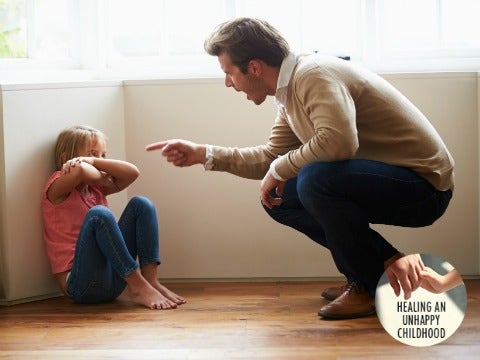How To Identify And Move On From Your Damaging Childhood 'Roles'
Are you a mascot or a scapegoat?

Childhood should be full of memorable moments but for some, their childhood is the wrong type of memorable. Growing up in a dysfunctional home and family, one that is plagued by addiction, abuse, and violence, can result in a childhood riddled with emotional, mental, and physical problems. The innocence of childhood is taken from them, as they have to assume roles in their families to cope with the dysfunction within their environment. The roles are identified as the following: Enabler or People Pleaser, Hero, Mascot, Scapegoat, and the Lost Child.
Children who take on the role as the "Enabler" or "People Pleaser" have an intense desire to fix the problems within their homes, leading them to have low self-esteem, experience self-pity and feelings of inadequacy. As adults, the "Enabler" seeks acceptance from others, experiences high levels of stress and anxiety, and tends to struggle with establishing and maintaining healthy boundaries with family, friends, co-workers, and significant others.
The childhood "Hero" is the perfectionist of the family who, through their accomplishments, strives to make their family appear normal. The "Hero" struggles with control, is fearful of making any mistakes and continues to be perfectionist in their adulthood.
The "Lost Child" tends to experience feelings of loneliness and neglect during childhood, leading them to be withdrawn during their adulthood. They have no sense of purpose or direction, and are codependent on others.
Getting into trouble, acting out and rebelling against rules is all behaviors of the childhood "Scapegoat". The "Scapegoat" is consumed with anger, resentment, and pain and engages in harmful behaviors to deal with the negative feelings, in both childhood and even more in their adulthood. Drug use is more common among the "Scapegoat", unlike the other family roles.
Lastly, the family "Mascot" wears a mask and tries to hide or escape the negative emotions they are experiencing with humor. At times, their humor is harmful and inappropriate. As adults, the "Mascot" seeks attention, is easily distracted, act immaturely, and lack the ability to have healthy decision-making skills. The “Mascot” uses humor and jokes as a coping mechanism throughout their childhood.
Are you able to identify with any of the family roles from your childhood? Feelings and beliefs experienced in childhood often influence the quality of life experience as adults. Because of the various dysfunctional family roles assumed during childhood, most adults enter adulthood, parenthood, and even relationships with unresolved childhood issues, leading to attachment issues, poor self-esteem, low self-confidence, and emotional baggage. If you are experiencing unhappy memories of your childhood because of growing up in a dysfunctional home, it would be beneficial to begin developing insight into how your childhood is impacting your ability to live a healthy adult life, and identify coping mechanisms that would afford you the ability to effectively deal with your past. Adults who have grown up in a home plagued by addictions, abuse, and violence, can recover and those memories do not have to haunt them forever.
If you have been unable to heal yourself, consider reaching out to a qualified professional in your area. They will be able to assist you in recognizing your triggers and how to react to your past pains. You can't change the past but you can control your present.
More family therapist advice on YourTango:

